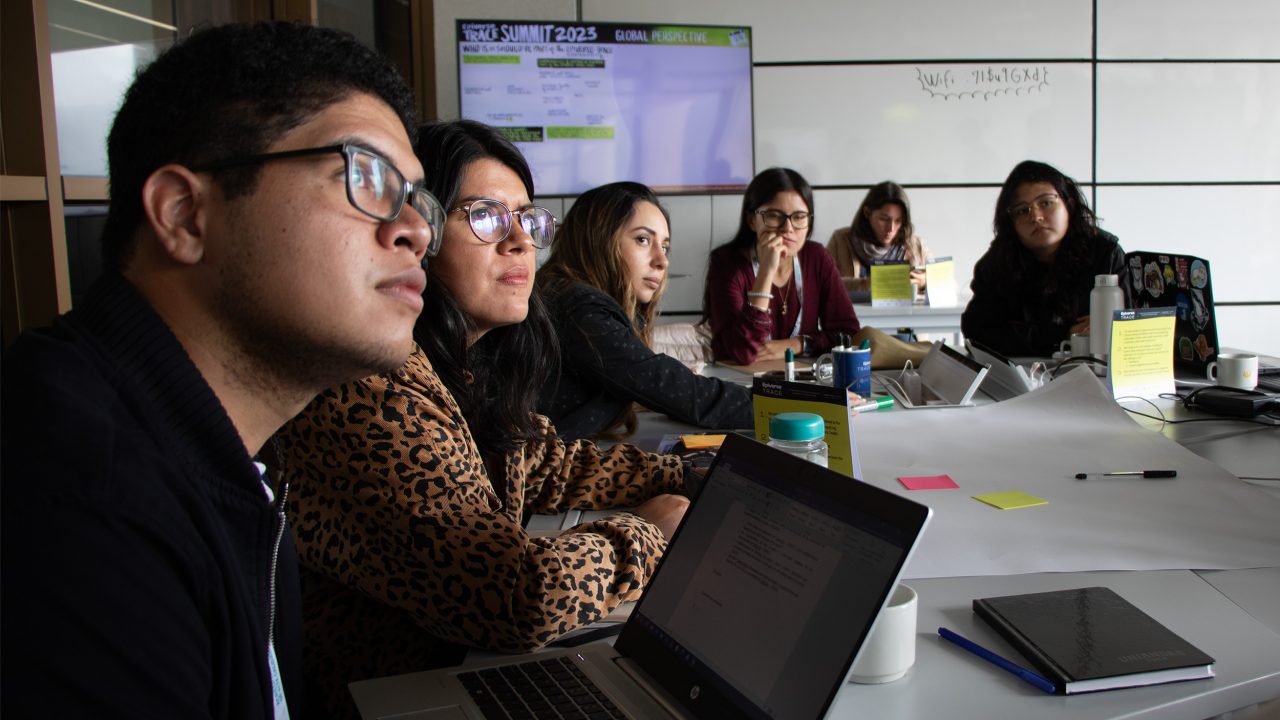By 2032, there will be a need for 3.5 million data practitioners focused on social impact in low- and middle-income countries (LMICs) alone. The global need will be far greater.
In data.org’s landmark report, Workforce Wanted: Data Talent for Social Impact, we explored this explosive growth in demand for purpose-driven data talent across nonprofits, research organizations, educational institutions, advocacy coalitions, and beyond. The field is growing rapidly, with new roles consistently emerging across sectors.
We are committed to helping to fill those roles with a pipeline of diverse, interdisciplinary data practitioners.
That was the inspiration behind our Capacity Accelerator Network, a global community committed to building the field. With accelerators based in the United States, India, Africa, and soon Singapore, CAN is driving data for social impact in financial inclusion and the intersection of climate and health through training, curriculum development, and experiential learning opportunities with a key focus on inclusion, diversity, equity, and accessibility (IDEA).
We also see a worldwide demand for people to fill roles in large distributed projects creating integrated and generalizable community-driven software, a need that has become more visible through our Epiverse collaborative. Over the last two years, researchers interested in data science tools for public health and epidemiology have been working together on the Epiverse-TRACE (Tools for Response, Analytics, and Control of Epidemics) research project. From Bogota to the Gambia to Berlin, the teams work together to change how analytics are used in global infectious disease response.
Through our involvement with Epiverse-TRACE, the data.org team sees firsthand the need for skilled data science practitioners, and also has identified the need for social science, communication, and translation roles geared toward improving the interaction between developers, users, and other stakeholders. These are some of the roles we hope to continue to identify, design, and feature here as part of our commitment to field building.
Finally, we know we are in an environment with roles that are new, or being performed without formal recognition.
The social sector has become increasingly digitally mature, but digital public goods are often built without the unique challenges and opportunities of social impact in mind. As a global convener and thought leader in data and AI, we at data.org believe that we need to acknowledge and name a role in the social sector called the “data ecosystem designer” that is charged with creating the data ecosystem that allows digital public goods to thrive and scale in the social sector. These data ecosystem designers are akin to city planners, as we describe in a recent blog post. As we collaborate with social impact organizations globally, we will help support new and unrecognized roles and what they may accomplish to drive change in the future.
For individuals in the workforce who are energized by the idea of being that force for change, we are excited to share the new data.org jobs board.
Our curated jobs board taps into our expansive network, connecting data professionals with organizations doing good work around the world. Because that is our primary focus: jobs that drive impact. From entry-level to senior positions, job seekers will find meaningful career opportunities, and social impact organizations will connect with the field’s most qualified and passionate candidates. We are approaching this resource in a way that is both targeted in its focus on quality DSI opportunities, yet also open-minded, recognizing that DSI jobs of the future can be in any sector and, quite often, will require interdisciplinary experiences and skills. As we explore the world and tackle challenges through the lens of data and AI, we must remain open to approaches we have not yet considered and roles we have not yet imagined.
This jobs board is not a catch-all for every posting with even a passing reference on data or AI. This is a carefully vetted and intentionally curated resource that will make it easier for top talent to find high-quality jobs that fuel purpose-driven careers.
Purpose-driven careers like those profiled in our Pathways to Impact series. Jacqueline Chan, for example, is the senior director of data and evaluation at the United Way Bay Area, a regional nonprofit that brings together partners from the nonprofit, business, and government sectors to address poverty in the greater San Francisco area. Hers has been a long and winding road to get into DSI, but each stop along the way has moved her closer to what she now considers a calling. Or like Linda Kamau, the executive director of AkiraChix, a social impact organization that provides young women in Africa with skills to compete economically and bridge the gender gap in technology. Linda saw the gender barriers firsthand when she started her career as a software engineer, and she made it her mission to open opportunities for other women in technology.
To do good work, we need good people. Good people with the right skills and a shared commitment to and passion for social impact. If you’re one of those people, you know someone who is, or you have a job opportunity that you think belongs on the Jobs Board, check out the listings or send us a message.
Together, we can build a stronger, more diverse, and more collaborative field of data for social impact.
